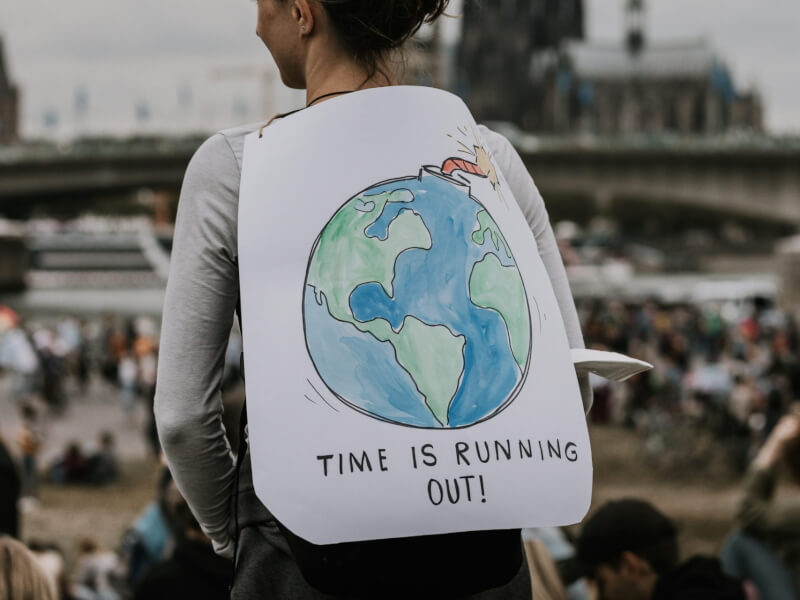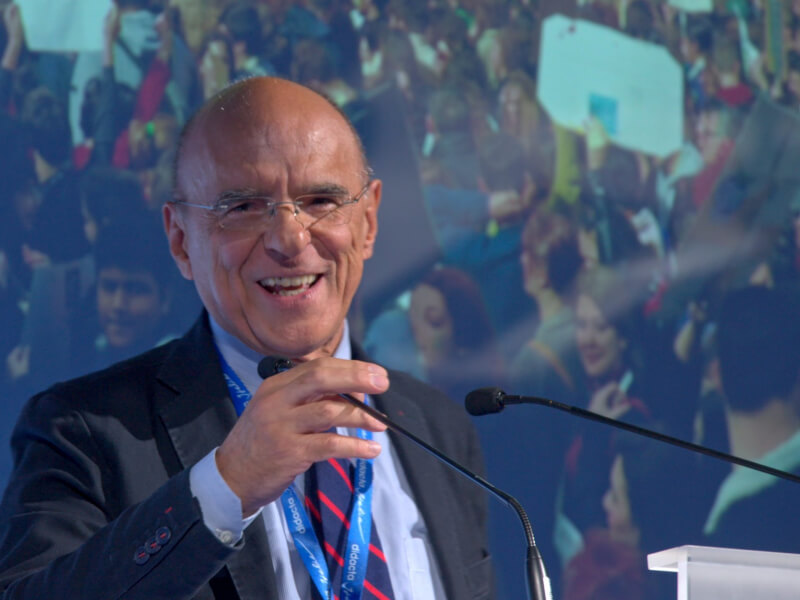04 December 2023 – The science is clear, we are on track for 3°C of global warming, an outcome that would have disastrous consequences for people and ecosystems. Yet the policies to deal with this fact are being implemented far too slowly. Governments are strolling into COP28 as if we had all the time in the world to bring down emissions.
Seventy thousand delegates are expected to land in Dubai to attend COP28, compared to 45,000 at COP27 in Sharm El Sheik. Many will be industry and policy representatives, come to manifest their green profiles while maintaining the status quo, or even to defend how they believe fossil fuels have a future in a carbon constrained world. It will be more trade show than climate conference.
And while industry representatives showcase their wares in one part of the conference complex, the negotiators will be huddled away elsewhere, spending the bulk of their time debating marginal items in the midst of a global climate crisis that impacts all societies, threatens all nations and undermines all prospects of future prosperity and equity.
Unless such tendencies change, and UN climate conferences are fully reformed to be more inclusive, ambitious and effective, the world will fail to hold warming to levels that science says are compatible with human life on a healthy planet.
It is too late to reform COP28, but we can put lines in the sand as to the ambition needed in Dubai and the underpinning structural shifts required for the next COPs. We need to secure a political commitment in Dubai that moves the world towards a fossil fuel phase-out. Given geopolitics it will certainly be impossible for negotiators to secure a deal ending our addiction to oil, gas and coal, but governments could agree to immediately halt any plans for new fossil fuel expansion, to start cutting off the trillions of dollars a year in fossil-fuel subsidies and to properly fund the loss and damage fund.
But this is not enough. The mitigation agenda, which needs to be the central focus in Dubai, is larger than the urgent need to start phasing out fossil-fuels. There is no manageable climate future unless we also secure carbon sinks and stocks in nature, and start scaling up carbon dioxide removal technologies. At COP28 we need to see a global commitment to advance on this front.
In our letter to UN Secretary General Antonio Guterres and UNFCCC Executive Secretary Simon Stiell, we question the whole premise of the COP given the process has not delivered on the science-based climate action the world so desperately needs. Instead of ever bigger annual climate jamborees, which are increasingly overhyped and underwhelming in what they deliver, we need to move to a system of smaller results-based meetings that focus on delivery, accountability, alignment with science, and safeguarding social justice.
In practice, this call means breaking down the closed so-called blue and green zones at COP, which separate the negotiators from everyone else, and shifting towards results-oriented areas, where policymakers, representatives from business, industry and finance, non-profit organisations, and young and indigenous people can meet and discuss together. It also means more frequent meetings and better representation of diverse groups, in particular from the global south.
It also means that the focus of every COP should not be at the whim of the Presidency —every COP should focus on all areas where emissions reductions are needed, including energy, nature and agriculture, with a view towards staying within our planetary boundaries.
Finally, COP gatherings should focus much more on finance and technical assistance. The only way to shift from incremental to transformative change is to close the financial flows that are causing the climate crisis and to open the financial tap to the technologies, practices and social safety nets needed to help societies and businesses accelerate the path towards a manageable, decarbonised future for all. Indeed, running throughout the COP discussions and agreements should be a focus on the just transition to ensure climate action comes with a social soft-landing for vulnerable nations and communities.
If we are serious about reversing this trend, negotiators meeting at COP should take note of our recommendations for a re-design. The legally binding Paris Agreement is finalised. There is no more text to debate. We are no longer in need of negotiations. What we need is implementation. We are rapidly closing the door to 1.5°C.The only thing that counts in the next two years is to bend the emissions curve, after that everything else will follow.






